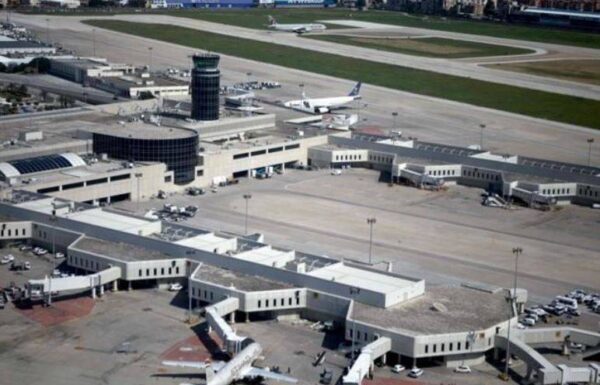Air traffic controllers at Lebanon’s only civilian airport announced on Thursday they would go on strike next month over severe staffing shortages, partially closing the Beirut hub.
The announcement by the team of 13 air traffic controllers at Beirut’s Rafik Hariri International Airport follows a report last week by the European Union’s aviation safety watchdog that raised concerns after inspecting the airport, just south of the Lebanese capital.
The airport is supposed to have a staff of 87 air traffic controllers, the controllers said.
Lebanon’s has been in the grip of a devastating economic crisis since late 2019 after decades of corruption and mismanagement. Public sector and state institutions have steadily deteriorated as the cash-strapped government struggles to provide adequate funding.
The Beirut airport has faced power cuts and equipment shortages for months during the busy tourism season. Over 4 million people flew into Lebanon since the beginning of the year.
The strike would begin Sept. 5 and the controllers would not work overnight, between 8 p.m. and 7 a.m.
The European Union Aviation Safety Agency and International Civil Aviation Organization said in a report carried by Lebanese media last week that its inspection of Beirut’s airport earlier this summer detailed multiple safety concerns, including a severe shortage of air traffic controllers.
The controllers said in their statement that the government has ignored their repeated proposals to resolve the issue, including bringing in experts from abroad to help, and dismissed their safety concerns. They said that they work roughly 300 hours a month, and “most of us are above 50 years old.”
Government officials have not responded to the announcement. The country’s General Directorate of Civil Aviation last week said that the airport staff shortage is part of a global issue impacted by the coronavirus pandemic restrictions. It said authorities were training new staff with ICAO’s support.
According to a source from the Lebanese Civil Aviation Department, there are only 15 certified controllers employed at Beirut airport currently out of 87 as a standard requirement.
With less people on the job and more work to do, “there is a higher risk of errors, which could have catastrophic consequences”, an aviation expert told The National.
It seems Lebanon is averting a crisis by mere chance, not due diligence. And while that is inherently disappointing, it is not surprising.
Sectarianism is the problem
There is no shortage of skilled labor or talent in Lebanon to justify the deficit in air-traffic controllers. In fact, the airport has at least 20 qualified candidates who passed the exam a few years ago ready to jump on the job and ease the burden on their colleagues.
They were reportedly never considered for the job “due to concerns about creating a sectarian imbalance in the country, as most were Muslim”.
Much like corruption and negligence, sectarianism plagues Lebanon and is the root of many of its political crises.
An ancient system that was introduced with Lebanon’s independence in 1943 divides power-sharing in the country along sectarian lines until this day. And just as authorities failed to learn from the 2020 port explosion, they also failed to learn from the country’s 15-year-long bloody civil war that was triggered by sectarian tensions.
So not only is the country’s president, prime minister and parliament speaker all selected according to their sects – not credentials – so are its air traffic controllers.
It has been three years since the Beirut port blast, and although the stalled probe has delayed justice, the lesson is loud and clear.
Lebanon needs to Act now, before it is too late.
ABC/ Ya Libnan


Leave a Reply
You must be logged in to post a comment.